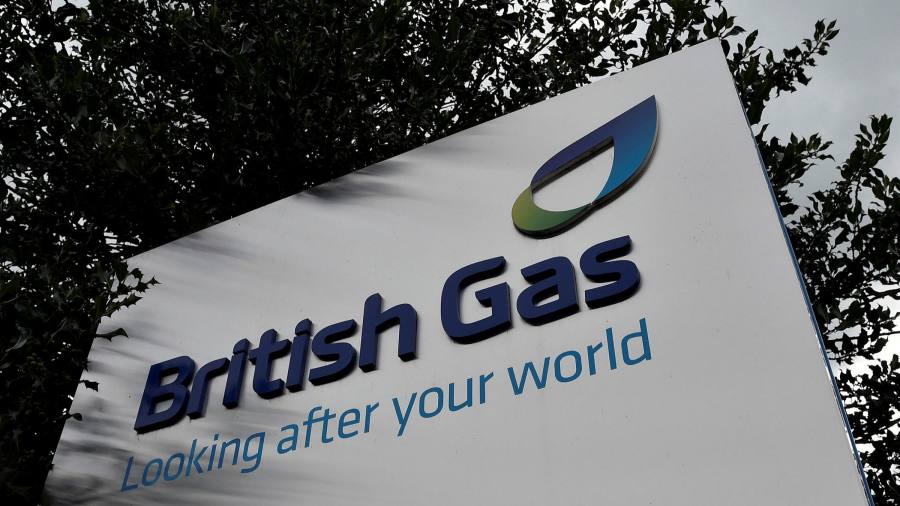
Centrica has called on the UK government to support households hammered by the energy crisis despite the owner of British Gas reinstating its dividend for the first time since 2020 and its profits surging fivefold.
Russia’s war against Ukraine and its subsequent throttling of supplies to Europe has caused a huge increase in the price of gas.
Chief executive Chris O’Shea warned that the UK was facing “a difficult winter” amid forecasts that the average annual UK household energy bill could soar towards £4,000 early next year, with the most vulnerable homes in line to pay £500 in January.
The charity Citizens Advice said on Thursday that it had already seen more people seeking help with energy in the first half of 2022 than in the whole of 2019 or 2020, including “unprecedented” numbers who could not afford to top up prepayment meters and so could not turn on their fridge or cook.
O’Shea defended the move to restart Centrica’s dividend, arguing that the last year had demonstrated the need for strong energy companies after the collapse of dozens of smaller UK energy suppliers.
“I know it’s difficult to see the words ‘dividend’ or ‘profits’ when people are suffering,” he said. He also pointed to the new windfall tax on energy groups, saying Centrica was paying “well over £600mn”.
Operating profits at the UK’s biggest energy retailer jumped to £1.3bn in the first six months of the year from £262mn during the same period in 2021, buoyed by higher revenues from its oil, gas and nuclear assets. It will pay a dividend of 1p a share, totalling £59mn.
O’Shea acknowledged that customers were “struggling” and called for greater action from the government, which launched a £15bn support package for households in May when bills were forecast to rise to about £2,800 — a level now far below where bills are expected to reach.
“You look at the average household income in the UK [and] you can see it’s going to put a lot of pressure on people,” said O’Shea. The median UK household income is around £31,400 after tax, according to the Office for National Statistics.
“We wait to see if there will be more [government] intervention. We’ve been calling for more support for consumers,” he added.
Oil has also rallied since the invasion, powering the profits of the largest energy groups.
Shell, Europe’s largest oil company, on Thursday reported adjusted earnings of $11.5bn in the second three months of the year, breaking the record $9.1bn posted in the first quarter. It also announced a $6bn share buyback.
Several countries, including the UK, have imposed additional taxes on energy companies this year, but another round of record profits for oil majors could lead to calls for additional levies. BP is also expected to reveal a strong performance in the coming days.
Rishi Sunak, the former UK chancellor running for the Conservative party leadership, said that the windfall tax he introduced was “the fair and right policy, given these record profits energy companies are seeing”.
But Liberal Democrats leader Ed Davey called for a “much tougher windfall tax to get the funds to help millions or people through what will be the toughest winter in generations”.
Frances O’Grady, general secretary of the TUC union, described energy groups’ “eye-watering profits” as “an insult to the millions of working people struggling to get by because of soaring energy bills” and called for “real action” to reduce such costs.
At Centrica, operating profits in the British Gas Energy segment of the business fell 43 per cent to £98mn, driven largely by the need to buy gas and electricity for new customers for whom it had not been able to hedge in advance.
Gas prices are now trading at about 10 times the average level of the past decade.
“The source of our profits is not rising customer energy bills,” said O’Shea, arguing that in the first half of the year on average Centrica made just £6 per UK household it supplied, with the amount it can charge largely governed by the UK price cap.
The company has, however, benefited from rising wholesale electricity prices from its stakes in nuclear plants and from its North Sea oil and gas assets.
O’Shea declined to confirm whether the UK could face gas shortages this winter if Russia completely severs exports, saying only that “we have to see how the winter pans out”.
But he emphasised that the company had secured additional contracted gas volumes from Norway and was in the process of trying to restart the Rough offshore storage facility — which the company shut down in 2017 — to bolster the UK’s supply security.
The UK is less exposed to direct Russian gas imports than mainland Europe, but can rely on pipeline shipments from Belgium and the Netherlands for around 15 per cent of supplies on the coldest days, so shortages in Europe could potentially have a knock-on effect.
O’Shea said discussions with the UK government on restarting Rough were continuing at pace, but he was unable to commit to the facility being ready for this winter. He said the company estimated that Rough could have saved consumers about £100 off their bills last winter if it was operational. Centrica is not asking for government support to finance the cost of restarting the facility.
“I think it could transform security of supply in the UK and also lower customer bills,” he said.
At the group level, adjusted earnings before interest, tax, depreciation and amortisation, including from oil and gas producing assets, increased to £1.66bn in the first six months of the year, from £682mn during the same period in 2021. Adjusted earnings per share, which strip out the effect of writedowns and other one-off charges, jumped to 11p from 1.7p.
Additional reporting by Delphine Strauss and Jim Pickard
https://news.google.com/__i/rss/rd/articles/CBMiP2h0dHBzOi8vd3d3LmZ0LmNvbS9jb250ZW50LzQwMzQyNmU5LWMzYjItNDEwOC1iYWI0LWZmODY5MmU3ODliOdIBAA?oc=5
2022-07-28 17:36:03Z
1515810722
Tidak ada komentar:
Posting Komentar